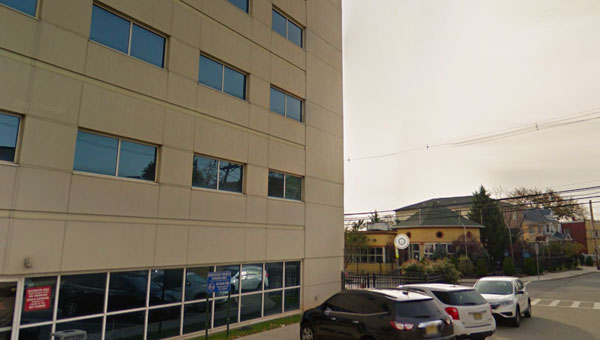
Mold is a sneak that gradually and with equal force attacks indoors, damaging structures and posing health risks. When mold forms, it does not only attack homes or buildings but even small spaces like vehicles and trailers. At FDP Mold Remediation, we have exclusive services offered in mold inspections, containing, extracting, and finally eradicating mold to ensure the affected areas are restored to their normal state in the shortest time possible. Recently, we completed a mold removal project in Elizabeth, NJ, which was based on two office trailers on North Avenue, where mold formation was a problem.
Mold in vehicles or trailers is more prevalent than some people would imagine. Due to the enclosed environment, limited airflow, and the fact that fabric is frequently present, mold is likely to grow if conditions are favorable. Mold spores require water, organic substances, and moderate climate to develop, which is why trailers are endangered. Here are a few reasons why mold might develop in trailers or vehicles:
Mold is known to grow in a short time and poses a threat to the quality of indoor air as well as the health of the residents.
In this particular job in North Avenue, Elizabeth, NJ, the major concern was to assess the level of mold growth in two office trailers. The trailers had been employed for administrative purposes; however, the client observed black spots on the air vents, which made them worry.
Mold remediation is not as easy with office trailers as it would be with any other stationary building. They are usually erected for short periods, and hence, their construction is not as strong as that of normal structures. Lighting is usually poor, and controlling the level of humidity is difficult. Also, since trailers are movable and, at times, parked for long duration, they turn into havens for moisture, therefore enhancing the proliferation of molds.
Another issue was identifying whether the black spots on the grills were mold or some other form of contamination. It is usually very difficult to identify mold just by its appearance, and it usually requires a test to determine whether the mold is toxic or not.
The client also expected the remediation process to be fast but efficient, in the sense that the trailers would be required soon after the job. This put increased pressure on our productivity.
The mold remediation job that we conducted in Elizabeth, NJ, was systematic, starting with an inspection of the house. Mold can also develop in areas that may not be easily seen, and we tried to check all areas as much as possible. The first thing we did was conduct a visual assessment of the trailers to establish the source of mold and its extent.
We first checked for mold on the surfaces of the rooms as a preliminary step before proceeding with air sampling to determine the concentration of mold spores in the air. This step was necessary in an effort to get an overall picture of the problem that the research was seeking to solve. There would also be the need to conduct post-air quality testing after the remediation so as to ascertain whether the trailers were habitable or not. Samples of the air in both trailers were collected and taken to a laboratory for testing. These tests proved that there were indeed mold spores, which proved that there was a need to make arrangements for the remediation.
Since the trailers are relatively small in size, we placed HEPA 500 CFM air scrubbers in both trailers. These air scrubbers are advanced equipment that act as suction machines that capture mold spores and other pollutants in the air. These were able to clean the air inside the trailers by using a high-efficiency particulate air (HEPA) filter in the scrubbers, thus making sure that the mold spores circulating within the trailers were properly trapped and eradicated.
Antimicrobial fogging was also done in addition to the air scrubbers. This process entails spraying an antimicrobial solution in the form of a fine mist throughout the area to eliminate mold on both surfaces and air. The fogging treatment ensured that all the areas affected and even the items within those trailers, including the remote corners, were treated.
To avoid contamination with other areas and mold spores getting airborne, we used negative air pressure containment. This process includes covering up the sections with airlocks and employing negative pressure equipment that draws in tainted air into the scrubbers while stopping it from moving out of the containment zone.
To control mold, containment chambers were established in both trailers, which was useful as it avoided the spread of mold spores to other parts without mold. This is especially so if the office is in an office trailer because the space is very limited, and mold moves from one area to another very easily.
Once the mold was treated and removed, we conducted the encapsulation services. This is a process of applying a sealant on mold-treated surfaces to prevent reinfection. This sealant plays the role of preventing mold re-occurrence by acting as a barrier to the material and the surrounding conditions. In the two office trailers, we sealed the surroundings of the vents, which were the initial point of identification of the mold and other areas of concern.
At the end of this project, we were able to remove all mold in the two office trailers, both visible and out of sight. The trailers' inspection, containment, treatment, fogging, and post-testing plan ensured that they were brought back to a livable state. The air quality check revealed a reduced number of mold spores in the environment, a sign that the remediation process had worked.
The client was satisfied with the outcome; more specifically, he/she appreciated the systematic approach and thoroughness. Thus, encapsulation services and air scrubbing helped not only remove mold from the trailers but also protect them against further mold development. The project was undertaken successfully, and it was done in four days, from January 21st to January 24th, 2024, without any interruption to the client's business activities.
It is even more complicated when the mold infestation is in vehicles and trailers, particularly because they are closed places. Since the offices are enclosed and may develop high humidity levels, they can pose a serious threat of mold formation, especially if they are not well maintained. FDP Mold Remediation of Elizabeth took the following measures to address this problem and ensure all the aspects of the mold problem were addressed to achieve a safe and healthy environment in the trailers.
If mold is present in your office trailer, vehicle, or any other enclosed space, it is advisable not to wait until it becomes very dangerous to your health. Call us today for mold detection and complete mold removal by competent professionals.
Mold in two office trailers. This project involved:

